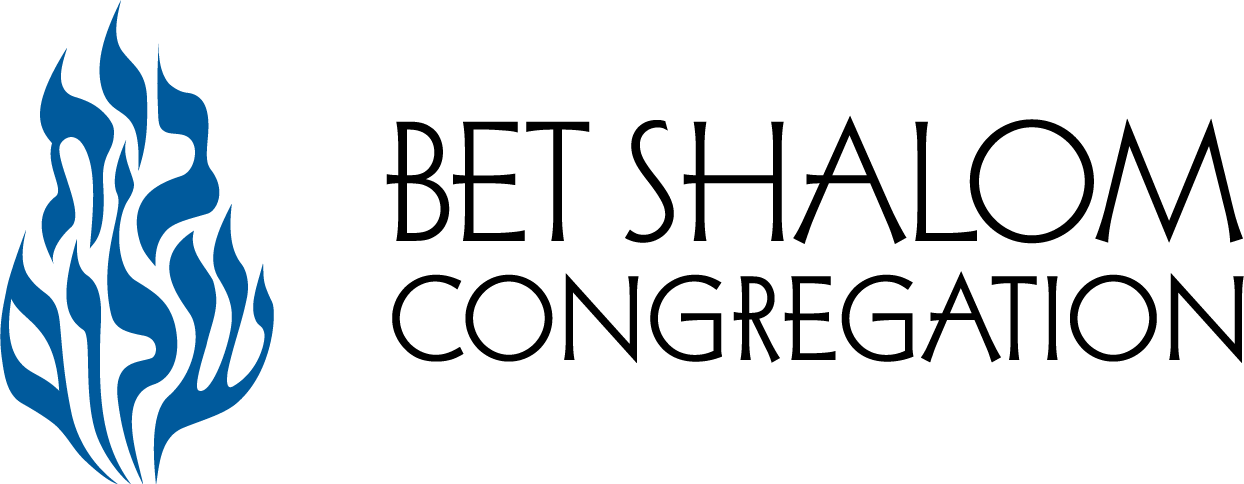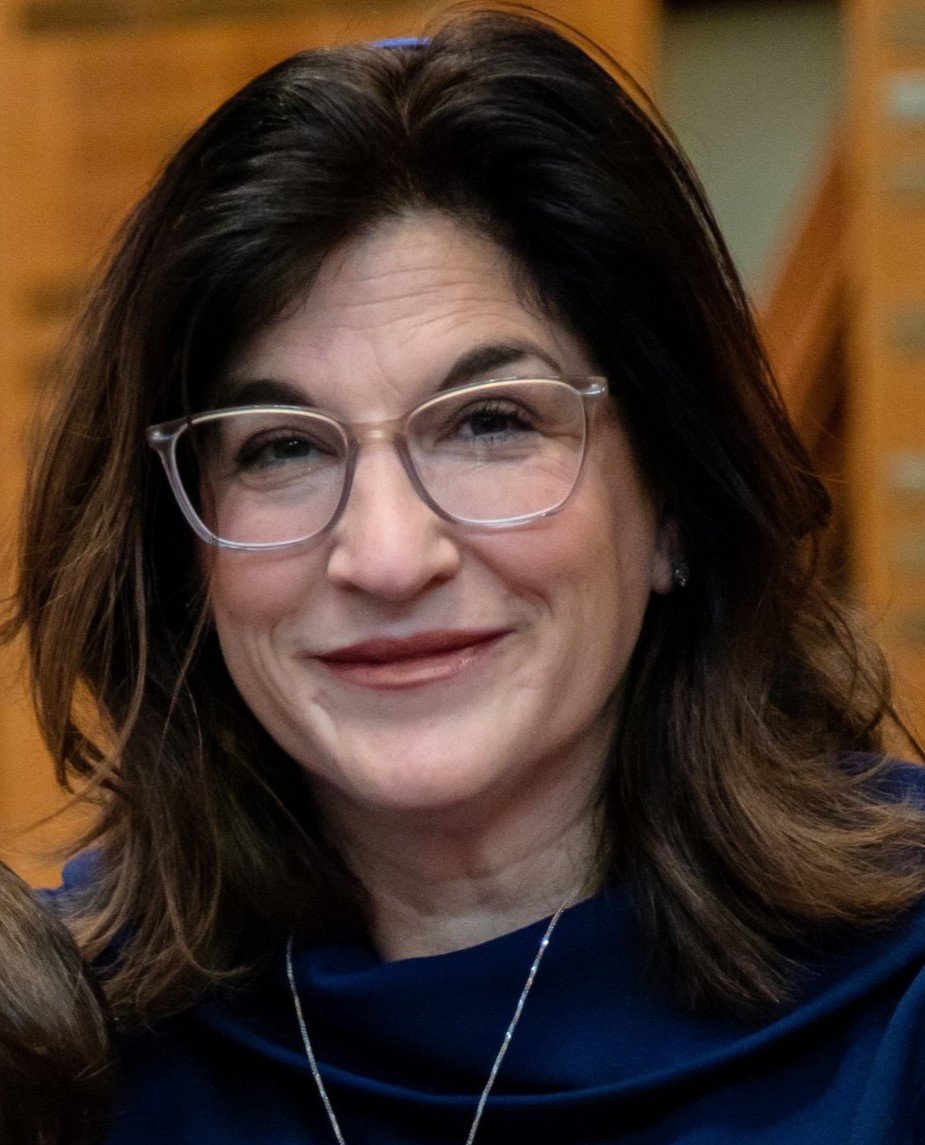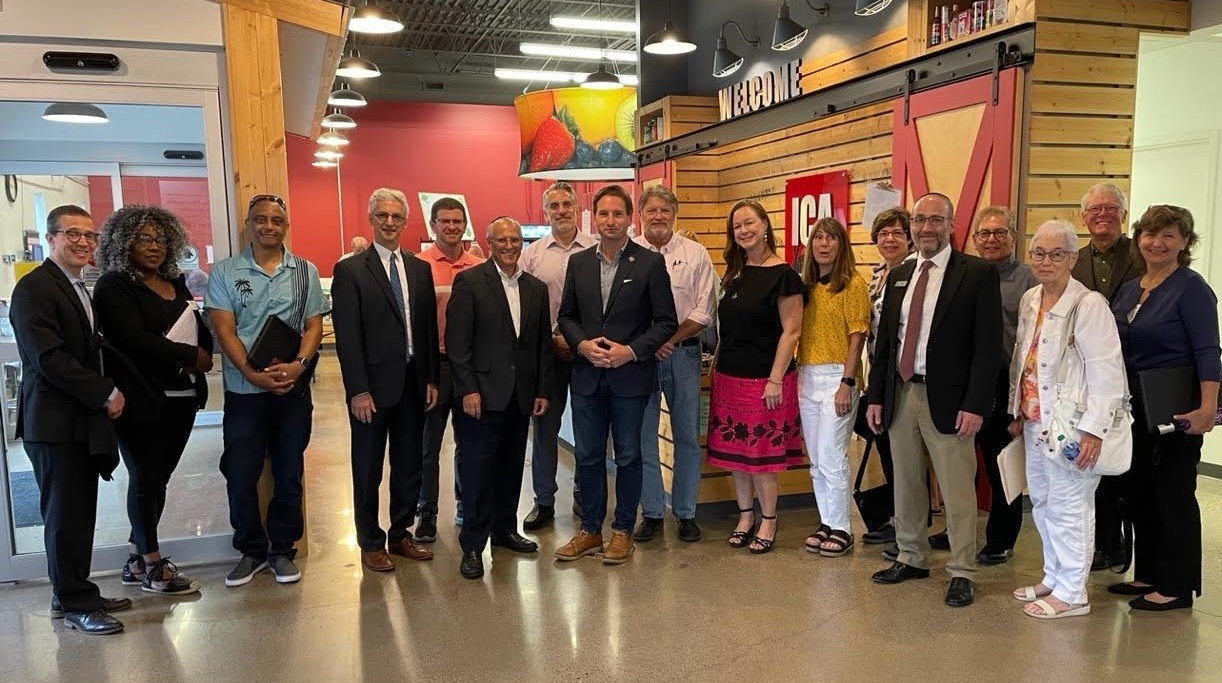Advocacy About Food Insecurity: Touring ICA Food Shelf and Keystone
By Jamie Hurewitz, Adam Cohen and Josh Kelner with Eric Bressler
In late August and early September, members of the Bet Shalom Board learned about issues of food insecurity and advocated about it to our Representative Dean Phillips and Senator Tina Smith by participating in events coordinated by MAZON: A Jewish Response to Hunger. Here they share their experiences with the congregation.
How were these events organized?
Jamie: Howard Tarkow, an Adath congregant and local MAZON board member reached out to me because I am the Chair of our Social Action Committee. Howard was organizing meetings with Minnesota legislators during their August break from Congress while they would be back home. He invited leaders from all of the Twin Cities synagogues to send three representatives to participate in these meetings to talk about the importance of food security and how the proposed amendments to the Farm Bill that are being considered in the next legislative session would leave millions of people without adequate access to food. The meetings were coordinated by MAZON. My role was to find members from Bet Shalom to participate.
Who attended the events from Bet Shalom?
Adam: Jamie asked the Board for volunteers. Many were interested but the timing didn't work for most. I was glad to be able to represent the Board and our community at the ICA tour.
Josh: It was great to see rabbis from three congregations including Rabbi Locketz tour ICA with us. They were an impressive presence to help represent our Jewish community.
Jamie: I participated in the Keystone Community Services tour.
What happened at each event, and what did you learn?
Josh: The August 14th tour of ICA Food Shelf was helpful to understand the process that folks go through each week to get their groceries and to understand from the ICA staff where they received most of the products (some of which comes from people's home gardens). Rep. Dean Phillips was very engaged throughout the tour of the ICA facility as well as during a 20 minute chat with the group. He was particularly focused on what significant challenges the organizations were facing, and his questions aimed at identifying root causes that he would take back to DC and look for ways to move the needle. He mentioned how the farm bill had previously received overwhelming bipartisan support., but now it is taking significant navigation to get the necessary support.
Some of the challenges mentioned by the ICA staff were the time-consuming process of getting customers qualified for SNAP benefits as well as that some people are just over the income threshold and therefore are better off making less money than they do today.
Adam: I was moved by the effort that went into ensuring the dignity of those who use the services of ICA. They are referred to as customers, and they walk into a facility that looks just like a small grocery store. They are given a shopping cart and some guidance on how much of each type of food they qualify for (with color-coded signs reflecting portion sizes that relate to the number of household members). They shop on their own, with "check out" mainly entailing support with bagging their groceries.
Jamie: For the meeting on September 6th with Tina Smith's staff (she ended up having to cancel her appearance but sent staffers in her place) we went on a tour of Keystone Community Services, another local organization that helps provide food to those in need in Ramsey County. We learned about Keystone and toured their facility and their mobile food delivery truck. We discussed with Tina Smith's staffers the issues surrounding the proposed changes to the Farm Bill that impact food benefits. We each shared the work our synagogue is doing to help with food insecurity issues.
How did this experience relate to your service on the Bet Shalom Board?
Adam: This was a nice opportunity for us to engage in one of our four strategic pillars, Tikkun Olam, and the tagline that goes along with it: “Serve as model members of society -- locally and globally.”
Jamie: As the Chair of the Social Action committee, this experience introduced me to new opportunities and gave me ideas to get our congregants active and involved in helping those in our community. We have really struggled with member engagement over the past few years, so we are looking for new ways to get people excited about social action. In particular, one thing I hadn't thought about was how difficult it is to find safe foods for those with food allergies and intolerances (like gluten free, nut free, dairy free, etc.). After this program I had the idea of putting together a food drive exclusively for foods that would be safe for everyone.
How did participating make you feel?
Adam: I was moved by the experience and proud of the Jewish community -- including representatives from multiple synagogues and Jewish community organizations -- for coming together to lend our voices to such an important cause.
Jamie: I was extremely excited about being a part of this experience. Sometimes when you are caught up in your daily grind it is easy to get bogged down and think, “Who am I as one person” and doubt your ability to make any difference in the world. Seeing all of the various congregations working together was inspiring! It would be great to continue doing so, especially in light of the rise of anti-semitism around the country.
Did you start or further any relationships with each other as a result of your experience?
Adam: Although I haven't acted on any of the relationships made with other participants yet, we established a sense of shared community that I know we can build upon the next time we are together.
Jamie: I have continued to stay in contract with Howard regarding other MAZON events coming up. In fact, on October 18th there will be a video call with Amy Klobuchar's staffers. If anyone is interested in attending, let me know and I will connect them so they receive the video conference link. This will be open to anyone.
To finish up, tell us a bit about MAZON.
Jamie: MAZON is a national advocacy group. They do not do any work with ICA or any specific food banks. They set up the ICA tour as part of the process to educate Dean Phillips on the issues and allow him to see the work done at the ground level. We did the same with Tina Smith's team but with a different local organization, Keystone. Here's the info MAZON sent with their original request for our participation:
MAZON is organizing synagogues throughout the state to get in front of members of Congress when they are home during the August recess. They will advocate for protecting and strengthening the federal nutrition programs. The largest program, the Supplemental Nutrition Assistance Program ("SNAP"), a/k/a food stamps, is included in the farm bill, which is up for re-authorization this upcoming session. MAZON's goals are to educate the elected officials about the tens of millions of citizens in our country who are food insecure and rely heavily on federal assistance and encouraging them to reject proposals for harmful "work requirements" that would have the consequence of cruelly disqualifying vulnerable people from receiving the basic need of food. It will not be easy getting this done in a divided Congress, but MAZON is determined to try applying Jewish values to end food insecurity.







